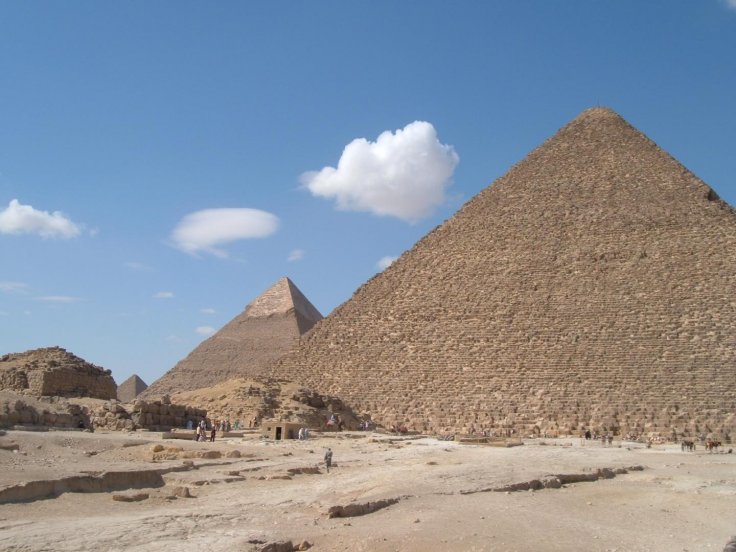An archaeologist has stated that he has finally solved the mystery regarding the Great Pyramid's peculiar alignment after he spotted a 'flaw'. The expert from Egypt believes that he has got the answer to how the ancient civilization was able to make such a complex structure without the help of modern technology, as per reports.
Researchers from the US-based Glen Dash Research Foundation and the Ancient Egypt Research Associates (AERA) had earlier identified the flaw in the alignment. A well-known theory suggests that the 4,500-year-old structure that is estimated to weigh more than six million tonnes got built after huge stones were moved from a nearby quarry, dragged, and also lifted into the place.
Dash's Study on Pyramids

The researchers found that three sides of the base of the pyramid were once between 230.295 meters and 230.373 meters long, but the west side came in between 230.378 meters and also 230.436 meters, which means it was off by around 14.1 cm, as reported by the Express. But, the sides fit properly despite the measurements along with the cardinal points of north, east, south, and west with all three of the largest pyramids of Egypt, two in Giza and one at the Dahshur, which are remarkably aligned.
Archaeologist and engineer Glen Dash stated, "All three pyramids exhibit the same manner of error, they are rotated slightly counterclockwise from the cardinal points," as reported by the Daily Star. Many hypotheses exist as to how the workers from ancient times did this, which include using the pole star to align the pyramids or the shadow of the Sun, but Dash stated he had cracked the mystery.
His study that was published in The Journal of Ancient Egyptian Architecture, suggested that the people from Egypt made use of the autumnal equinox for achieving perfect alignment. The Earth is tilted on the axis, which means that as it orbits the Sun, the star illuminates the northern or southern hemisphere more depending on the orbit.
However, at two points in the year, the Sun illuminates the northern and also the southern hemispheres equally, which is known as the equinox. The researcher also showed the chances of error were similar to those discovered in the alignment of the Khufu and Khafre pyramids at Giza and the Red pyramid at Dahshur.
Despite the convincing argument, there is no proper evidence that it was the case. "The Egyptians, unfortunately, left us a few clues. No engineering documents or architectural plans have been found that give technical explanations demonstrating how the ancient Egyptians aligned any of their temples or pyramids," Dash's report concluded.









